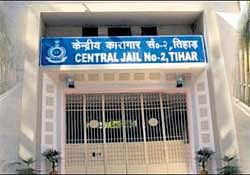
He is to draw his inspiration from consecrated principles. He is not to yield to spasmodic sentiment, to vague and unregulated benevolence. He is to exercise a discretion informed by tradition, methodised by analogy, disciplined by system, and subordinated to ‘the primordial necessity of order in the social life. Wide enough in all conscience is the, field of discretion that remains” - Benjamin Cardozo, The Nature of the Judicial Process, Yale University Press (1921).
However, Lord Camden was more pointed when he said that judicial discretions is ‘the discretion of a judge - the law of tyrants: it is always unknown, it is different in different men; it is casual, and depends upon constitution, temper and passion. In the best, it is oftentimes caprice; in the worst, it is every vice, folly and passion to which human nature is liable.”
Very recently, Justice Ruma Pal, former judge of the Supreme Court of India also criticised the higher judiciary for seven sins, one of them being “intellectual dishonesty or arrogance that is manifest when judges decide without being bound by principles of stare decisis or precedent.”
Social justice and liberty is the common thread that runs through the Indian Constitution and bail jurisprudence in turn tries to ensure that this cord is left unbroken through the due process of law that ensures the presence of an accused at trial.
If the presence of the accused can be secured by any other means in the trial, it would be a great cost to impinge on his liberty by not granting him bail. Justice Krishna Iyer in Gudikamti Narasimhulu and Ors v Public Prosecutor, High Court of AP has held that “Bail or jail - at the pre-trial or post-conviction stage - belongs to the blurred area of the criminal justice system and largely hinges on the hunch of the bench, otherwise called judicial discretion”.
Justice, sole purpose
At this point it is important to note that such discretion must be exercised, not in opposition to, but in accordance with, established principles of law, leading to the sole purpose of providing justice. Personal liberty of an accused or convict is fundamental, suffering eclipse only in terms of ‘procedure established by law’. The last four words of Art. 21 are the lifeline of this fundamental right. Indeed, justice must not be lost in procedural technicalities of law.
In the name of procedural formalities, the basic and most sacrosanct right of liberty must not be compromised. The requirement of bail is only to ensure the attendance of the accused at the stage of trial or post conviction and it should not become a weapon in the armoury of the court to punish the accused before his guilt is proved beyond reasonable doubt.
In order for this to fructify, the judges have adopted a holistic and humanistic approach to bail jurisprudence in which the central idea is to secure the attendance of the accused and ensure fair trial without crippling or maiming the fundamental tenet of criminal law that no man shall be punished until his guilt is proven beyond doubt. The principal rule to guide release on bail has always been to secure the presence of the applicant who seeks to be liberated, to take judgement and serve sentence in the event of the court punishing him with imprisonment.
Victims of procedure
However, this tenet is observed in breach rather than practice, as is evident from the number of undertrial prisoners languishing in jail.
Many of the undertrial prisoners in jails in India suffer at the hands of procedural laws as they are unable to meet the requisite financial requirement for availing bail. In the landmark judgement of Hussainara Khatoon, it was observed by the Supreme Court that the undertrials suffering in jail were in such a position where no action or application for bail was made, either, because, they were not aware of their right to obtain release on bail or on account of their poverty they were unable to furnish surety and/or personal bond.
The plight of these undertrial prisoners is such that they are made to compromise on their personal liberty due to their financial weaknesses, which is a travesty in the face of the principles of social justice, liberty and equality promised by the Constitution of India.

(The writer is a senior advocate of the Supreme Court and Vice Chairman, Law Commission of India.)
(The views expressed in the article are personal views of the writer.)